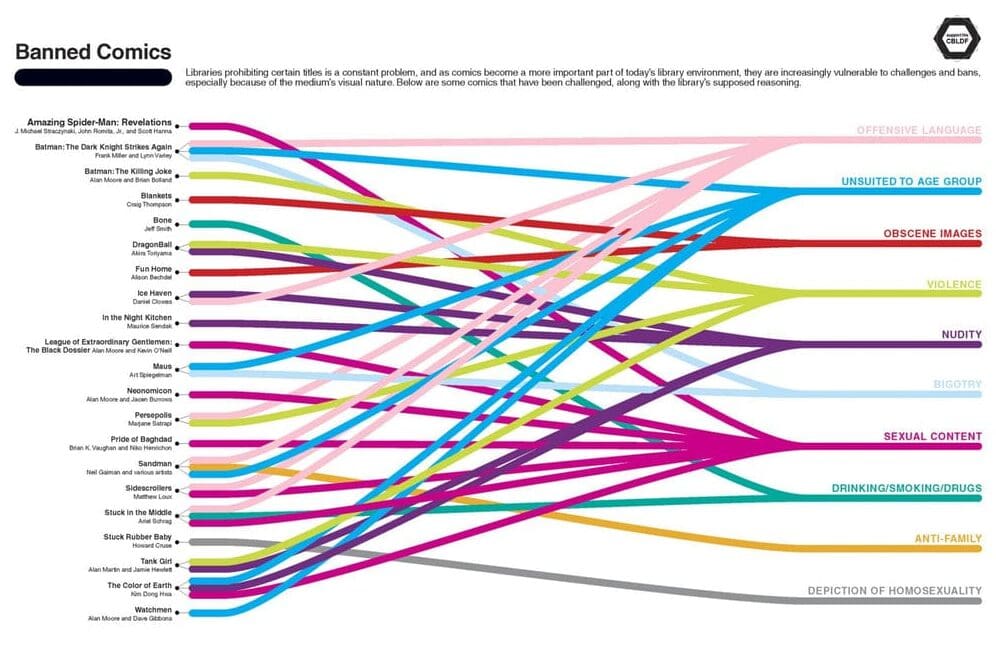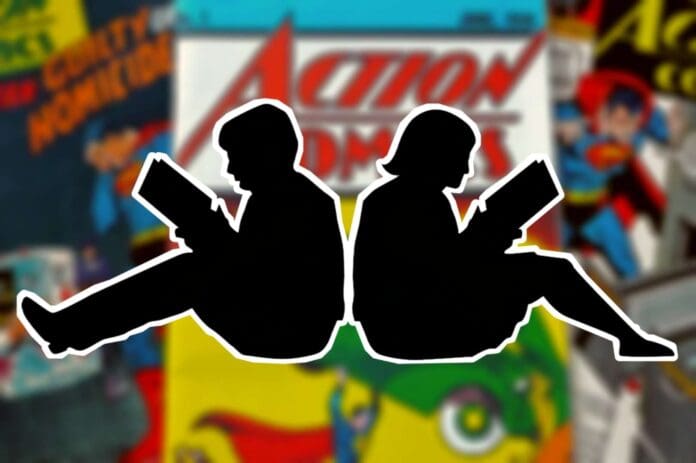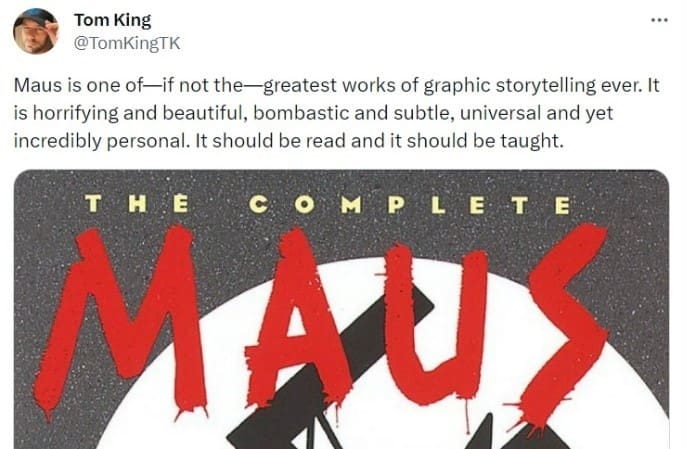Share this
Getting a child to read is a challenging task. Some may find it hard to believe that I was a terrible reader growing up, considering reading and writing are the basis of everything I do today. Throughout my entire grade school experience, I was placed in special reading classes because I wasn’t as good at reading as the other kids. However, in tenth grade, everything changed because of comic books.
In tenth grade, I was reading at a fourth-grade level. When I transferred to a new school, my reading teacher discovered I had a love for superheroes. She recommended that I go to the library and check out a comic book to read in class. I was in shock. I had always been told that comic books didn’t count as real books, but I wasn’t going to question her methods. I checked out a copy of “The New Teen Titans” written by Marv Wolfman and drawn by George Perez. When I finished it, she had me read more comics. Within six months, I went from a fourth-grade reading level to a seventh. My father called my teacher a miracle worker.
When most people think of comic books, they think of superheroes like Superman and Batman. Although Superman and Batman are staples in comic book history, the medium itself includes a diverse set of genres with many complex narratives. Ambrosha Koepp is a special education and reading intervention teacher. In her seven years of teaching, she has used comic books in her classroom.
“There is a comic for everybody. That isn’t what everyone thinks at first.” Koepp said. “We have our typical superheroes like Marvel and DC. A lot of the students love those because they are familiar with them, but reading comics has been a great way to introduce the students to independent comics that cover topics like social justice issues. Comics are the gateway to literature because comics ARE literature.”
Koepp teaches students with disabilities like dyslexia, autism, and ADHD. She states that comic books have helped her students both academically and mentally.
“When you give a student a novel, they get terrified.” Koepp said. “A novel is large, it’s black and white most of the time, and some students have trouble reading left to right. With comics, you can focus on one section at a time, and they have multiple things to look at. Comics also help students who have trouble understanding emotion because there is an illustration along with the words.”
It’s easy to pick up a comic book and read it, but understanding them can be a challenge in itself. Brian Long has been teaching for 11 years. Currently, he is teaching a sophomore English class along with a class about graphic novels themselves.
Long likes to bring out the creativity in his students when he uses comic books in his classroom. He has his students read the comics like a play, with every student getting a role. As they read, they pause to talk about what is being depicted within the panels. For one assignment, he gives his students a comic book script. The students then draw the script, and they compare and contrast how they interpreted it.
Long has a deep love for comic books and believes they should be discussed in school more often. “Comic books should be held to the same standard as normal books.” Long said. “People often think that Shakespeare is very high brow art. In actuality, Shakespeare was the Marvel Cinematic Universe of that time period. There was no entertainment; everyone went to the plays! In a fashion, Shakespeare being a populous art form is the same as comics being a populous art form. Just because it’s newer doesn’t mean it’s less artistically valuable.”
Unfortunately, many influential comics are being banned from public schools. In 2022, “Maus” a Pulitzer Prize-winning comic book, was banned in Tennessee public schools for being “inappropriate for kids.” Or more recently, “Anne Frank’s Diary: The Graphic Adaptation” was banned in Florida public schools for “nudity,” and a Texas teacher was fired for showing the book to her eighth-grade students.

Drew Maxey has been a teacher for six years. He teaches high school literature, media literacy, and will have a graphic novel course starting in January 2024.
“Regardless of the medium, I feel that the suppression of information, in general, is flat out wrong.” Maxey said. “As a teacher, my philosophy of teaching is that everything can teach you something. There is knowledge and value in every single thing you come across.”
Maxey has his media literacy class reading “V for Vendetta,” written by Alan Moore and drawn by David Lloyd, and for his graphic novel class, he said he was going to have his students read “Maus” by Art Spiegelman. Both of these books have been banned in some public schools for being “inappropriate for children.”
“I told the school, if I can’t teach ‘Maus’ in the graphic novel class. I’m not teaching the class.” Maxey said. “It would be like teaching English and being told you can’t teach Shakespeare. It’s one of the cornerstones of the medium and it NEEDS to be talked about.”
Comic books have shown they can help students become better readers. So why are these school boards banning them? When this question came up, all three of these teachers said the same thing. Power, fear and control. People want to feel like they are in control, and comic books are an easy target.
“I don’t think the people who are banning these books have even sat down and read them.” Koepp said. “They probably read a portion, it made them feel uncomfortable, and they don’t want to hear it. As much as I want the world to be rainbows and butterflies, it won’t be until we grow and learn. By suppressing these things, you are just sweeping it under the rug and pretending it doesn’t exist. I think that because it is different, it scares people.”
“It’s part of a history that the comic book industry has had to face in the past. Going all the way back to The Comics Code and Dr. Fredric Wertham.” Long said. “In the last two or three years, I feel history is repeating itself. I feel that because this form of literature has become so popular and accessible, it makes those with close-minded views afraid, and they want to control it.”
“Since comics are a visual medium, it’s really easy to flip through them and find something that’s bad without paying attention to the context.” Maxey said. “If people actually took the time to read, there wouldn’t be any bans. It’s not about banning a book; it’s not about the children; it’s about grandstanding. They want to ban these books that deal with gay and trans characters, partially because they want to suppress that information, but mostly because they want to take a stand. It’s virtue signaling.”
If it weren’t for comic books, I wouldn’t be doing what I am doing today. I know there are kids just like me out there who will not have the same opportunities that I did because of these book bans. Getting a child to read is a challenging task. Teachers work day and night to get their kids interested in reading. Now that they have found a solution, people are trying to take it away. So, before you go and ban a book from an entire generation of children, ask yourself, “What is the goal of education?”
“The overall goal is to teach a child.” Long said. “Teach a child about the world and to understand something better. The hardest thing we have to contend with is to get a child interested and wanting to learn. If this particular art form is what gets someone excited and makes someone want to learn more about something. Why would you want to rob them of that?”


